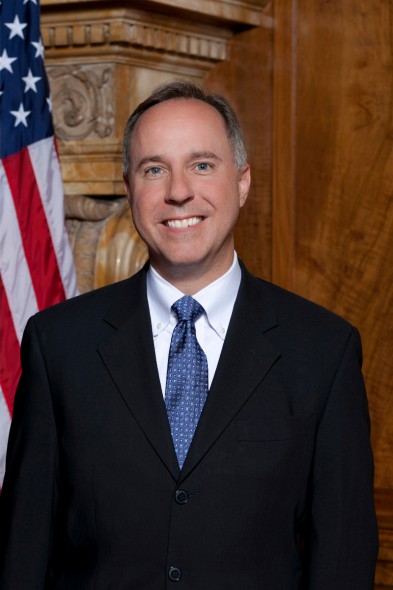New Commission Must Resolve Voting Mess
Partisan Elections Commission replaced state GAB; how will it perform?
For almost two years, Republican elected officials said this: A partisan panel – with equal numbers of Democrats and Republicans – would better administer election and campaign-finance laws than the six-member Government Accountability Board (GAB) made up of retired judges.
So, those Republicans created the state Elections Commission, made up of three Republicans and three Democrats. It was created only weeks ago.
Now, we get to see if those Republicans were right.
The Commission is in the middle of a complicated, bitter fight between opponents and champions of dozens of changes to state voting laws enacted since Republicans took power in 2011. Those changes included requiring a photo ID to vote, abolishing straight-ticket voting and telling local clerks when they could accept absentee ballots. Rulings by two federal judges shredded key parts of those GOP changes, and are being appealed.
The new Elections Commission only has 11 weeks – until the Nov. 8 election – to get it right. More than 3 million votes could again be cast for President.
And the Commission is only one of four actors in this drama. Its lawyer, the state Justice Department, is appealing federal judges’ rulings that both blocked and upheld those changes. Finally, lawyers for groups that sued to block the laws, having won on some key points, are fighting Justice Department attempts to reinstate those laws.
Here’s a partial list of what all these actors have to resolve by Nov. 8:
*Should someone without a photo ID be able to sign an affidavit stating why they don’t have a photo ID and vote? U.S. Judge Lynn Adelman, a former Democratic state senator, ordered the affidavit remedy, and even specified how it should be worded. But, on Wednesday, three U.S. Court of Appeals judges tentatively struck down Adelman’s affidavit option. Those judges cited a “substantial likelihood” that Adelman’s remedy would eventually be thrown out. And, on Thursday, another federal judge refused to reconsider his ruling ordering some changes to the GOP laws.
*What residency requirement – 10 days? 28 days? – must a voter on Nov. 8 swear they have met?
*Are limits that Republicans put on absentee voting, and hours local clerks’ offices can be open to accept absentee ballots, all void?
*What – if anything – can accurately be said in the planned education campaign to make voters aware of the first presidential election that requires a photo ID to vote?
“It’s a mess,” one official who has worked with election laws for decades said. “There are a lot of moving parts.” The official, who agreed to discuss the conflicts only anonymously, also worries that the confusion will hurt – not enhance – turnout on Nov. 8.
There is one added — and huge — uncertainty: Federal money for 22 of the Commission’s 31 employees – or 70 percent – runs out early next year.
Elections Commission members include the super partisan Steve King, of Janesville, a member of the Republican National Committee and an appointee of Assembly Speaker Robin Vos, and two members with extensive experience in running local elections – Beverly Gill, of Burlington, and Julie Glancey, of Sheboygan Falls. Gill and Glancey were appointed by Republican Gov. Scott Walker, but he was pressured by legislators to appoint both a Republican (Gill) and Democrat (Glancey, a retired Sheboygan County Clerk).
Two other Democrats on the commission include Ann Jacobs, of Milwaukee, an appointee of Senate Democratic Leader Jennifer Shilling, and Mark Thomsen, of Milwaukee, who was appointed by Assembly Democratic Leader Peter Barca.
The only Commission member who lives in Dane County is Don Millis, an appointee of Senate Majority Leader Scott Fitzgerald. Millis is also the only commissioner who served on the old state Elections Board, which GAB replaced in January 2008.
A quick history lesson: Power on the old Elections Board switched back and forth, depending on which party was in control in the Capitol. That meant a decision to let a Democratic member of Congress use his federal campaign fund to run for governor was reversed years later, after Republicans took control of the board.
The 3-3 partisan makeup of the Elections Commission also means that a tie would leave a major issue unresolved. If that happened often, the commission would become Wisconsin’s version of the Federal Elections Commission, which deadlocks so often along party lines that it can’t get anything done.
Walker last week called requiring voters to show a photo ID on Nov. 8 “a reasonable measure to protect Wisconsin voters against cheating and make sure every vote counts.” Democratic appointees on the commission may not agree.
Steven Walters is a senior producer for the nonprofit public affairs channel WisconsinEye. Contact him at stevenscwalters@gmail.com
The State of Politics
-
A Wisconsin Political Trivia Quiz
 Dec 15th, 2025 by Steven Walters
Dec 15th, 2025 by Steven Walters
-
The Fight Over Wisconsin’s House Districts
 Dec 8th, 2025 by Steven Walters
Dec 8th, 2025 by Steven Walters
-
The Battle Over On-Line Betting
 Nov 24th, 2025 by Steven Walters
Nov 24th, 2025 by Steven Walters






















